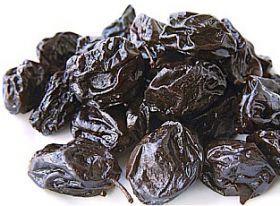
Prune sales could be set for a boost after a new study showed eating even small portions had a significant positive impact on bowel function.
The independent research was funded by the California Prune Board and carried out byProfessor Kevin Whelan of King’s College London, together with colleagues from Queen Mary University of London and the University of Aberdeen. It is being published this month in the journal Clinical Nutrition.
The findings demonstrate the effectiveness of eating prunes at a lower consumption rate of 80g daily, as opposed to the higher amount of 100g recorded in previous studies and in theexisting EU authorised health claim. Eating fewer prunes to achieve the same desired effect may appeal to those who were concerned at the requirement to eat 100g of prunes as per the original European Food Safety Authority health claim.
The controlled trial is said to be the first to take the EU health claim data further by following the stringent research requirements defined by EFSA and measuring the impact on bowel function using objective measures of demonstrated importance to gut health (stool weight, transit time) as opposed to previous studies which relied on self-reporting mechanisms.
The research, based on a group of healthy adults with low fibre intakes and infrequent bowel movements (three to six stools per week) showed that stool weight and frequency significantly increased in the sample consuming both 80g or 120g of prunes and water, when compared with the sample only adding water to their daily diet.
Low stool weight and delayed transit time are risk factors for diseases such as colorectal cancer, haemorrhoids and constipation and increasing fibre intake is the recommended route to reduce the risk of developing these problems.
The study further dismisses the myth that adding prunes to the diet causes weight to increase, reinforcing the results of a previous trial undertaken by the University of Liverpool in 2014. The paper also highlights how adults following a prune-rich diet may show an increase in levels of bifidobacteria, a potentially health-enhancing bacteria that prebiotics are designed to increase. In fact, the researchers observed that the increase of bifidobacteria was in the same order of magnitude as that observed in some studies investigating the prebiotic effects of inulin and fructo-oligosaccharides and so recommended further research.
Esther Ritson-Elliott, European marketing director of the California Prune Board, said: “The California Prune Board, representing the world’s premium quality prunes, has a long history of investing in cutting-edge research to underpin the exceptional health and nutritional credentials of California prunes. This study is not simply a repeat of previous similar scientific investigations, but instead represents a brand-new UK research initiative that patently reinforces and adds significant weight to the existing EU health claim.
'In fact, we may now consider applying for the EU health claim to be adapted in line with these latest findings. Although there are daily sensationalised reports claiming new ‘gut health’ breakthroughs, this published paper research has used robust, objective outcome measures to confirm the long-held view that eating a diet rich in California prunes offers clear and tangible benefits in terms of improving normal bowel function.”



